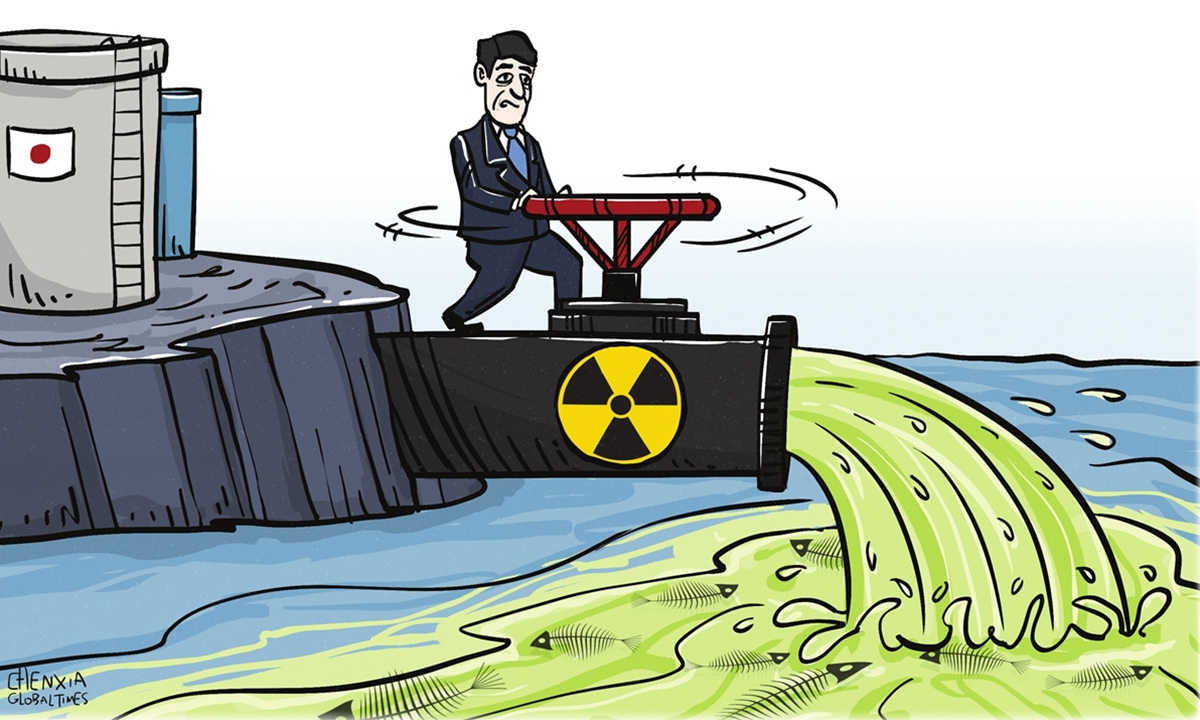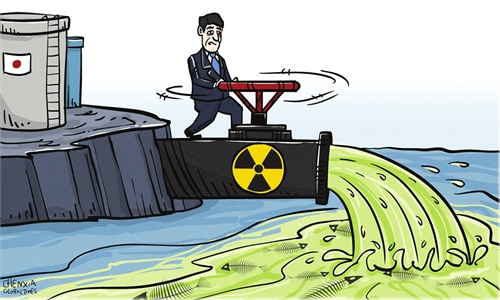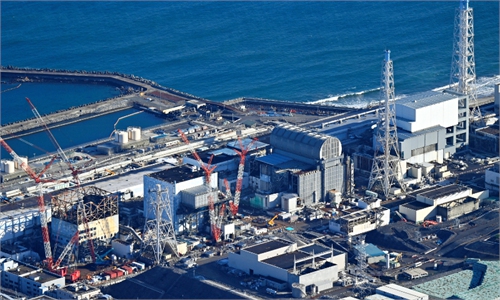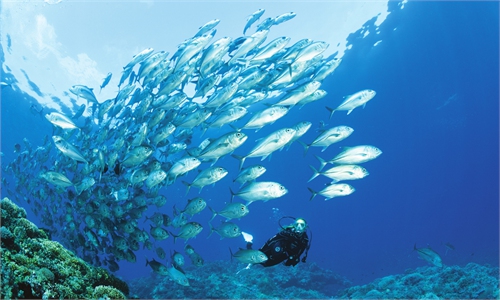Intl community has right to demand responsibility from Japan for dumping nuclear-contaminated water: FM

Illustration: Chen Xia/GT
If Japan arbitrarily goes ahead with dumping nuclear-contaminated water into the ocean, the international community would have the right to urge responsibility from Japan for transferring the risk of nuclear contamination to all mankind, the Chinese Foreign Ministry said, as Japan commenced its discharge test by switching on some related equipment.
According to Japanese media reports, Japan's crippled Fukushima Daiichi nuclear power plant commenced the operation of equipment used for stirring the nuclear-contaminated water and homogenizing the concentration of radioactive substances for the first time on Friday as a prelude to the final dumping.
When asked to comment, Chinese Foreign Ministry spokesperson Wang Wenbin said that Japan should not initiate the discharge of the nuclear-contaminated water before all stakeholders and relevant international institutions can confirm the safety of the discharge plan.
Wang said the international community is not convinced by the so-called safety of the treated water given the doubted independence and verifiability of the data, urging Japan to deal with the nuclear-contaminated water in a safe manner that suits international obligations, international security standards and international good practice, including the full study of other disposal options other than the dumping plan.
Compared to suing Japan in international court, which can be done only after Japan starts discharging the water, experts suggested countries including China should act now to request advisory opinions to the International Tribunal for the Law of the Sea (ITLOS) through international organizations such as the UN General Assembly, International Maritime Organization, the WHO and the WTO.
"The advisory opinions were for the international court to explain whether Japan's dumping of nuclear-contaminated water into the ocean complies with international law. And if the court judges Japan's behavior is illegal, which is highly possible, we can then take the advisory opinions to the court later again after Japan starts the discharge to make it stop and ask for compensation for damages," Chang Yen-chiang, director of the Yellow Sea and Bohai Sea Research Institute of Dalian Maritime University, told the Global Times on Tuesday.
Chang explained that countries have the right to directly sue Japan at ITLOS, but the burden of producing evidence, which means proving that Japan's dumping of nuclear-contaminated water did direct damage to their ocean resources, would be complicated as there are no international standards on how much radioactive material in the water would be safe for marine organisms. The dilution of the seawater could affect the measurements as well.
In November 2022, China and Russia presented a joint list of technical questions to Japan, but the Japanese side failed to answer by distorting concepts, evading the crucial part, and even refusing to talk about the matter, said a Chinese diplomat on Thursday.
Chang suggested the Global Times to keep following the issue closely as he believes the Chinese Foreign Ministry attaches great importance to the issue and may take some substantive and practical measures very soon against Japan's intention to dump the nuclear-contaminated water.
On Sunday, the power plant's operator Tokyo Electric Power Company (TEPCO) said about eight tons of highly contaminated water in a tank has overflowed to another tank due to a malfunction with the gate valve.



